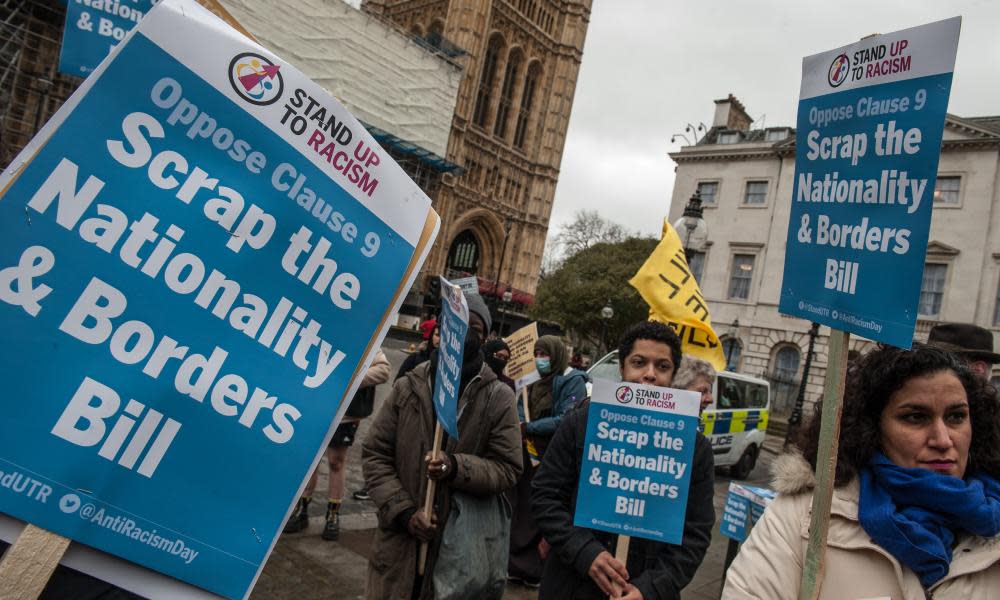UK’s draft refugee and police laws are ‘human rights vandalism’, says Amnesty

Rights group’s annual report accuses Britain of setting ‘worrying reverse course’ in bills on refugees, policing, protest and welfare
The government’s attack on fundamental rights and protections enshrined in UK law is an “act of human rights vandalism” that would curtail the ability of people to hold the state to account, Amnesty International has claimed.
In its annual report on the state of human rights across the world, Amnesty strongly criticised the British government for its attempts to dismantle the Human Rights Act and a battery of new “draconian” legislation on refugees and policing.
Sacha Deshmukh, head of Amnesty International UK, said: “The UK can’t credibly champion human rights internationally if it’s busily undermining and unravelling them at home.
“The Human Rights Act is the central pillar of rights and protections in the UK, and it’s vital for the big justice fights we are currently facing.
“It’s the means by which we can challenge police behaviour, contest poorer health outcomes for ethnic minority groups, and ensure a proper Covid inquiry. Scrapping the Human Rights Act is an act of human rights vandalism that must be countered at all costs.”
Deshmukh said the public’s recent outpouring of support for people fleeing Ukraine underlined the need for the government to reconsider its hostile treatment of asylum seekers.
Amnesty’s report also strongly criticised the government’s controversial nationality and borders bill. The legislation, which is going through parliament, would deprive many refugees of the right to seek or be granted asylum in the UK, contrary to international law.
It could also criminalise those attempting to claim asylum after crossing the Channel, and could see asylum seekers sent to other countries for processing, Amnesty warned.
Last week, the government won a series of votes in the House of Commons to restore parts of the nationality and borders bill that had been removed after strong opposition from the House of Lords, including plans to process refugees’ claims abroad.
Amnesty also described the government’s police, crime, sentencing and courts bill as a serious danger to the right to freedom of assembly and association, saying it would severely limit public protest in the UK. People’s rights would be drastically limited, with police powers to ban protests deemed too “noisy” or “disruptive” increased, said Amnesty.
“The UK has set a very worrying reverse course on rights and protections just when it should be standing up for human rights, not dismantling them,” said Deshmukh.
Related: Amnesty hits out at Tory plans to replace Human Rights Act with bill of rights
The report also highlighted the government’s decision to cut its emergency welfare response to the pandemic of an extra £20 a week for those on universal credit, which is expected to push an estimated 500,000 more people into poverty as the cost of living soars.
On a global scale, the Amnesty report concludes that post-pandemic promises to “build back better” have been broken by governments across the world. “2021 should have been a year of healing and recuperation,” Agnès Callamard, secretary general of Amnesty International, said in a foreword. “Instead, it became an incubator for greater inequality and instability, not only in 2021, not just for 2022, but for the decade ahead.”
Despite enough production to fully vaccinate the world in 2021, by the end of the year under 4% of those living in poor countries had been fully vaccinated. World leaders had instead colluded with corporations to hoard power and profit, leading to deepening global inequality, the report said.
“While companies’ CEOs and investors bagged big profits, those desperately needing the vaccine were told to wait. And die,” said Callamard

 Yahoo News
Yahoo News 
